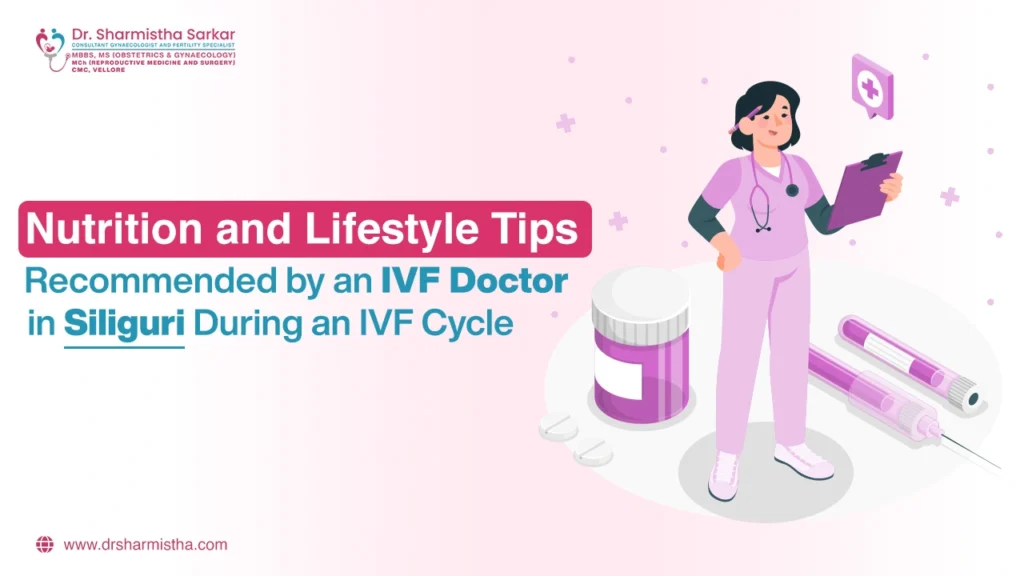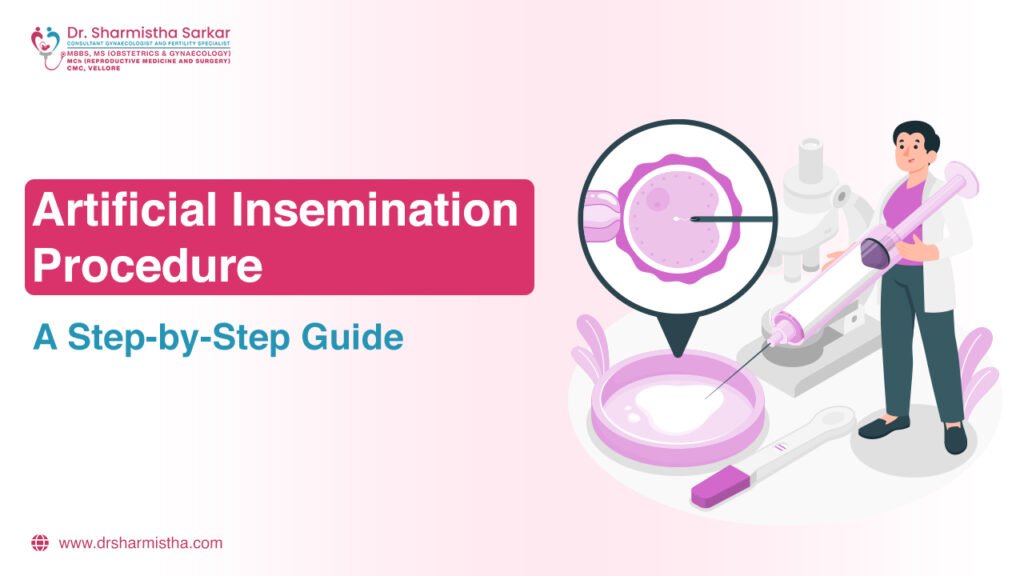Nutrition and Lifestyle Tips Recommended by an IVF Doctor in Siliguri During an IVF Cycle
When a couple is undergoing fertility treatment, the presence of a reputed IVF doctor in Siliguri can make all the difference. The success of an IVF cycle is mostly dependent not only on the procedures involved but lifestyle choices, emotional wellness, and nutrition. Ideally, any couple needing IVF should adopt certain daily habits that will aid in conception. In this guide, get to know some of the key nutrition and lifestyle tips from Dr. Sharmistha Sarkar, the top IVF doctor in Siliguri, to help prepare both your mind and body for this treatment. Understanding the Lifestyle–IVF Connection Being a trusted IVF doctor in Siliguri, Dr. Sarkar acknowledges the influence of diet, stress, physical activity, and environmental exposures on IVF success. Some lifestyle changes might produce reproductive outcomes when administered consistently. Couples must be able to create the best internal environment for fertility treatment with the correct guidance. Building a strong foundation before and during IVF enhances physical readiness and gives weight to emotional resilience. Life changes such as consuming nutrient-dense foods, maintaining a calm mindset, and restful sleep can all affect the quality of an egg and sperm. Dr. Sarkar recommends couples to adopt these habits at least 2–3 months before the cycle to give your body enough time to respond well, thereby making the chances of a successful conception higher. Essential Lifestyle and Nutrition Tips Supporting Your IVF Journey IVF success is not just about medical interventions, it is also about how one lives his or her life. Below are the expert recommendations by Dr. Sharmistha Sarkar providing a complete pathway to boost your chances of conception using nutrition, gentle movement, and well-being: 1. Balanced Nutrition: The Cornerstone of IVF Success • Whole and Fresh Foods The fertile-supporting diet keeps in line with fresh fruits and vegetables, whole grains, lean proteins, and healthy fats. Foods like dark leafy greens, berries, citrus, oats, brown rice, tofu, and avocados are quite helpful in balancing hormones and in caring for egg or sperm health. Dr. Sarkar, a leading IVF doctor in Siliguri, proposes that patients stay away from processed foods, sugary beverages, and Trans fats as they tend to impair reproductive hormones. • Fertility-Specific Nutrients Folic acid, vitamin D, iron, zinc, and selenium are essential elements. These are all said to improve the quality of the egg. For best supplementation recommendations based on lab reports and general status of health, a consultation with Dr. Sarkar is always recommended. 2. Hydration and Detoxification Staying well-hydrated keeps cervical mucus healthy and gives strength to the functioning of the endocrine system in hormonal operations, both vital for conception. You need to drink about 3 liters of water every day. Herbal teas can alleviate bloating and provide a relaxing effect. Dr. Sarkar, the IVF doctor in Siliguri, recommends caffeine, alcohol, and sugary drinks elimination from one’s diet so that the system becomes more receptive toward conception. 3. Gentle Exercise: Supporting the Body without Stress Exercising too much will cause the cortisol to rise, hindering ovulation. Instead, do gentle activities such as yoga and swimming. These promote circulation of organs concerned with reproduction and reduce stress. Always check with your IVF doctor in Siliguri before making any changes to your exercise schedule during IVF. 4. Managing Stress IVF can take an enormous toll on one emotionally. Prolonged stress raises the levels of cortisol and adrenaline, which may resist ovulation and hormonal adjustments. Dr. Sarkar advises that one goes on practicing mindfulness with meditation and deep breathing exercises. Joining a support group with others and taking time out to indulge in hobbies can go a long way in contributing to the cause. Being a leading IVF doctor in Siliguri, she tells every client that the emotional environment is conducive to treatment success. 5. Sleep Quality: Fertility from Nature Five to eight hours of uninterrupted sleep at night ensures a hormonal balance of estrogen and progesterone. It also strengthens immunity and ovulation. Dr. Sarkar advises a consistent bedtime schedule, avoiding screen time right before sleep, and leaving the bedroom dark. Such minor steps can go a long way toward fostering good sleep and better IVF outcomes. 6. Minimizing Exposure to Toxins Toxins such as BPA from plastics, alcohol, and tobacco affect fertility. Foods should be cleansed well, foods should not be heated in plastic containers, and never be in the vicinity of smoke. Dr. Sarkar is one of the best IVF doctors in Siliguri and instructs couples to detox their environment for at least 3 months prior to an IVF cycle. 7. Male Fertility Matters Too Male reproductive health is just as important. The diet, lifestyle, and stress management all matter. Dr. Sarkar tells male partners to consume foods rich in antioxidants and zinc, keep stress at bay, wear breathable underwear, abstain from tobacco, and alcohol. Dr. Sarkar is a preferred IVF doctor in Siliguri because she looks after both partners. 8. Timed Nutrition and Supplement Intake Meal timing impacts insulin sensitivity and hormonal balance. Dr. Sarkar, therefore, suggests having a breakfast rich in proteins and avoiding meals close to bedtime. Keeping the timing of fertility supplements consistent makes them even more potent. Being an IVF doctor from Siliguri, she is very much particular about scheduling when to take the supplements along with the hormone therapy for greater benefit. 9. Integrated Therapies with IVF Acupuncture is thought to boost blood supply through the uterus, favoring implantation. Aromatherapy with essential oils may be used for alleviation of anxiety. Massage will improve circulation and ease muscle tension. According to Dr. Sarkar, patients should check first with their IVF doctor in Siliguri before embarking on any alternative treatments to avoid interference with the medications prescribed. 10. Staying Grounded and Positive Every IVF procedure can be different depending on age, past medical issues, and biology. Realistic expectations and a positive outlook are pertinent. Compassionate IVF doctor at Siliguri, Dr. Sarkar, stresses the necessary points of consistency, trusting your medical team, and staying educated. She will assist you on both emotional and medical



